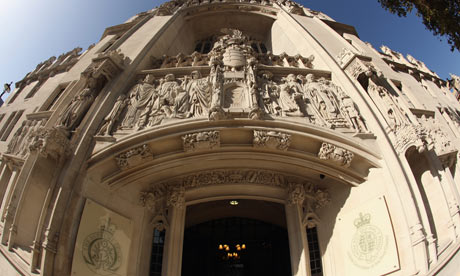Share it
 The Supreme Court website has been updated with a statement explaining that the Justices of the Supreme Court have decided that “it would not be appropriate or indeed feasible” for there to be a comprehensive Register of the Interests of all of the Justices. The statement goes on to say that it would be impossible for the Justices to identify all of interests which might conceivably arise in future cases. Hence any Register of Interests, which the public would inevitably take to be comprehensive, would be misleading.
The Supreme Court website has been updated with a statement explaining that the Justices of the Supreme Court have decided that “it would not be appropriate or indeed feasible” for there to be a comprehensive Register of the Interests of all of the Justices. The statement goes on to say that it would be impossible for the Justices to identify all of interests which might conceivably arise in future cases. Hence any Register of Interests, which the public would inevitably take to be comprehensive, would be misleading.
The Justices have instead agreed a Code of Conduct, by which they will all be bound. This can be found on the Supreme Court website. We draw attention, in particular to the following provision of the Code
Previous participation in public office or public debate on matters relevant to an issue in a case will not normally be a cause for a Justice not to sit, unless the Justice has thereby committed himself or herself to a particular view irrespective of the arguments presented to the Court. (para 31.4)
The statement of the Justices represents a change from the procedure in the House of Lords. The Lords of Appeal in Ordinary who were members of the Appellate Committee of the House of Lords (now the Justices) were appointed under the Appellate Jurisdiction Act 1876. This appointment gave the Law Lords full voting and other rights in the House of Lords. However, the Law Lords had for some years voluntarily excluded themselves from participating in the legislative work of the House of Lords. Nevertheless, the Lords were bound by the rules of the House of Lords, including the Code of Conduct (for which see here) and therefore the Law Lords provided entries for the House of Lords Register of Interests.

